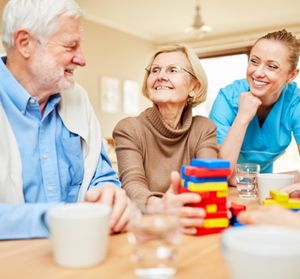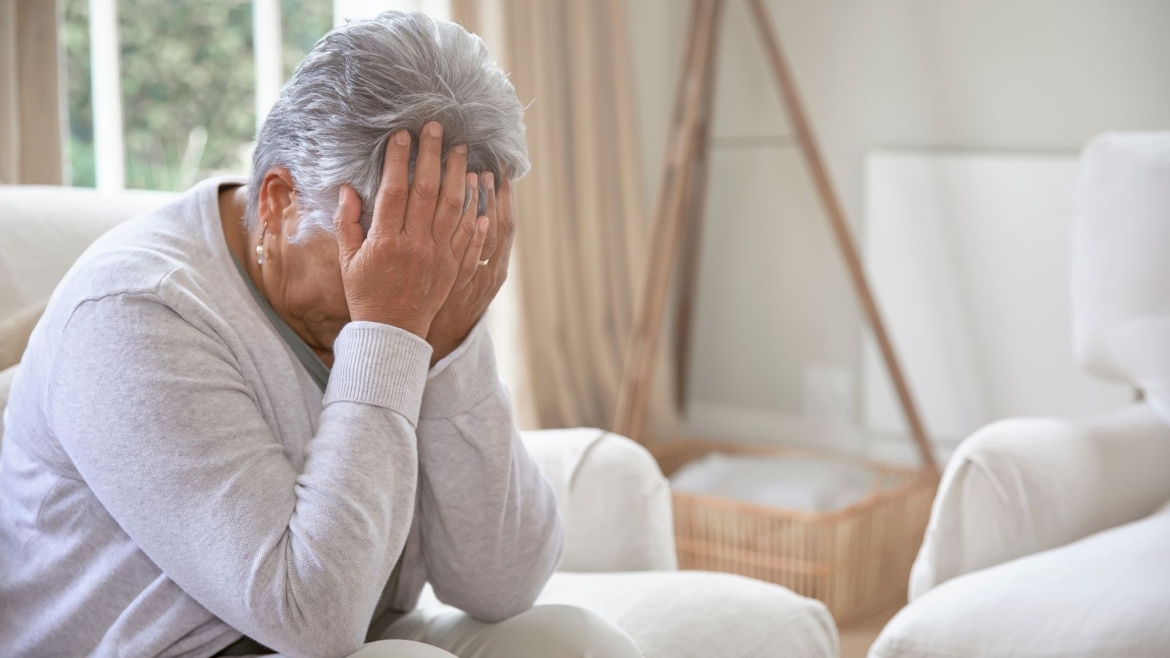In this blog, we will dive into anxiety and explore it, for us to apprehend what are the causes of it. Once we have a better understanding of this disorder, we can come up with what help we can provide to individuals suffering from anxiety, especially seniors.
Here are the things that seniors, their relatives, and friends need to know.
What is Anxiety?
Anxiety is a feeling or an emotion and is distinguished by undesirable feelings of dread over expected circumstances. It is a sensation of uneasiness, and worry and is associated with tension and avoidance manners.
Did you know that anxiety is a normal human response to stress and can be helpful in some conditions? Yes, it is related to fear. Our response to an immediate threat or what they call flight or fight response. It involves the anticipation of a coming threat and helps us to be prepared and pay attention to our situation.
However, it becomes a disorder once when extreme or continues beyond appropriate times. They say that 30% of adults suffer from an anxiety disorder which is a common mental disorder.
There Are Multiple Types Of Anxiety Disorders
Panic Disorder
These individuals suffer from panic attacks. It is uncontrollable and includes physical symptoms such as shortness of breath, absurd perspiration, and dizziness. There are also psychological symptoms such as that they are having thoughts like experiencing a feeling of impending doom or emotions that they gonna die or will go crazy. A person with panic disorder lives in constant fear of suffering another panic attack.
Obsessive-Compulsive Disorder (OCD)
People with obsessive-compulsive disorder features of a pattern of undesirable thoughts and fears (obsession) that are direct to doing repetitive manners (compulsion). It interrupts the individual’s daily activities and causes substantial distress. They have consistent thoughts and fears that initiate anxiety. They alleviate this anxiety by executing certain activities repetitively.
Social Phobia
Social phobia or social anxiety disorder is fear in social and performance-related circumstances where an individual may be subject to the scrutiny of other people. They may feel an extreme fear that something they accomplish or say will lead to embarrassment. These people are unable to tolerate ordinary circumstances such as making small talk with other people or mingling with the public.
Post-Traumatic Stress Disorder (PTSD)
People who suffer from this kind of anxiety disorder are at some time in their life, become a part of or witnessed an extremely traumatic occurrence such as an assault or accident. They are unable to sleep and relax due to regular flashbacks of the event that happened.
Generalized Anxiety Disorder (GAD)
People with generalized anxiety disorder experience extreme anxiety and fear about certain problems or occasions in their life. Controlling their fear and anxiety is very difficult for them all the time. There is no specific trigger and it just happens in their everyday life.
Specific Phobias
Phobias are unfounded fears and somebody with phobias goes to extraordinary lengths to avoid the entity or condition that triggers their anxiety. Some of these phobias are animal phobia, which is a fear of certain animals or insects. Natural environment phobia is fear of the natural environment such as fear of heights, water, or darkness. A situational phobia is a fear of specific situations such as riding an elevator or an airplane. Other examples of phobias are fear of blood, injections, surgery, or being injured.
Anxiety and Seniors
Anxiety is a typical illness among aged adults. Based on studies, it is the most common mental health issue for women, and the second most common for males, after substance abuse.
For seniors, depression often goes along with anxiety, and both can reduce the overall health and quality of life. Anxiety is also extremely linked to memory. It can interrupt memory and can contribute to amnesia or flashbacks of a traumatic event.
Poor health, memory problems, losses, and fear about aging can lead to anxiety disorder in seniors. Being left alone, dependent on others, health changes, medication, and treatment of their illness are some of the causes of anxiety for older adults.

Ways On How To Reduce Anxiety In Seniors
Breathing Exercises
One great way of managing physiological symptoms of anxiety in seniors is deep breathing. It helps them to relax and promotes good rest. When we increase carbon dioxide in our blood, it soothes the parts of the brain which is responsible for anxiety.
Perform Physical Activities
Older adults don’t get often enough exercise that they need, but they should understand that physical activities are one of the ways to improve their mental health. Some forms of activities may include yoga, walking, swimming, dancing, and some light bodyweight exercises.
Food Diet
Having proper food nutrition is critical for seniors’ physical and mental health. Giving them the right proportion of protein, healthy fats, and carbohydrates will aid in managing their anxious thoughts.
Social Interactions
Seniors experience loneliness, especially if they can’t move around and go out into the community they’ve been to before. We need to help them to cope with social isolation can be an excellent method to ease anxiety and other mental health issues. One great source of social support is their family. A regular visit can distract them from stressful thoughts and improve their mood. If you can’t visit them in person. Try video chatting with them.
Setting Up Routine Activities
Lack of routine activities can be a prominent source of anxious emotions and it’s very common in seniors with Alzheimer’s or dementia. A routine can alleviate stress and can be done daily or weekly.
Do Relaxing Hobbies
Performing relaxing or calming activities will help seniors to relax and distract them from sources of anxiety. Every individual has different interests so make sure to try out different options that will help them to calm down. You can choose drawing, listening to music, reading and gardening are some popular relaxing hobbies for seniors.
Sijison Home Healthcare Is Here For You And Will Provide The Care And Support Services That You Need
We know how challenging for a family caregiver to provide care and support to the elderly who is suffering from an anxiety disorder. You need to juggle your personal life, work, and care for your loved one who is suffering from an anxiety disorder. We are here to help and support you.
With our support services, we can help your loved ones in managing their anxiety and live a normal and healthy life. From assisting them with their daily routine activities, preparation of light healthy meals, to homemaking, performing personal hygiene care, and other relaxing activities that will distract them from other sources of anxiety.
Sjison homecare provides world-class clinically-based care right where you need it. We provide different care services for your loved one right inside in the comfort of your home. We have a team of professional and experienced caregivers ready to provide care and support 24/7 when you need us. Contact us and schedule your free assessment today.

